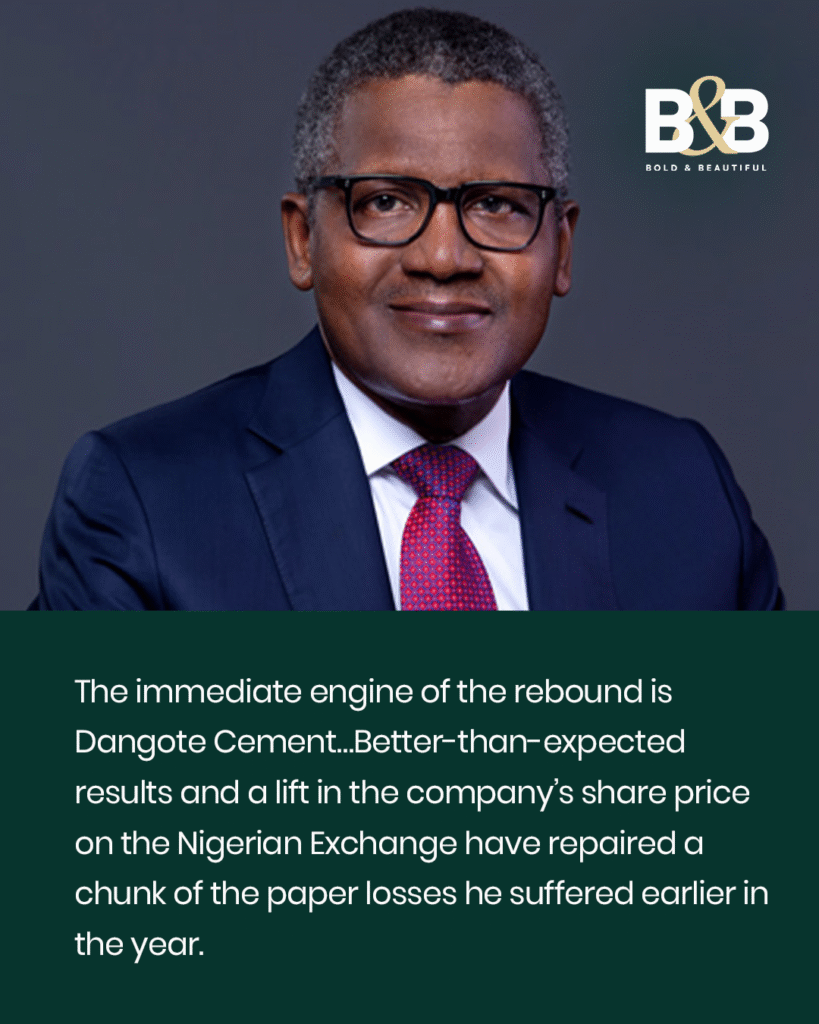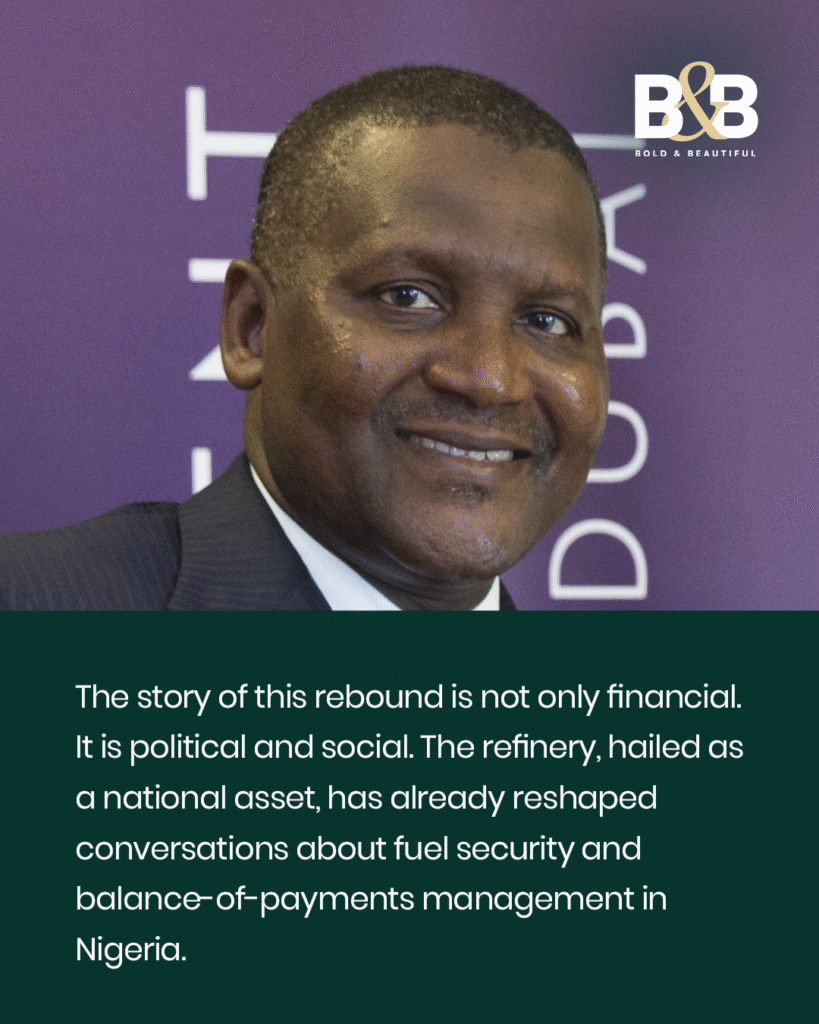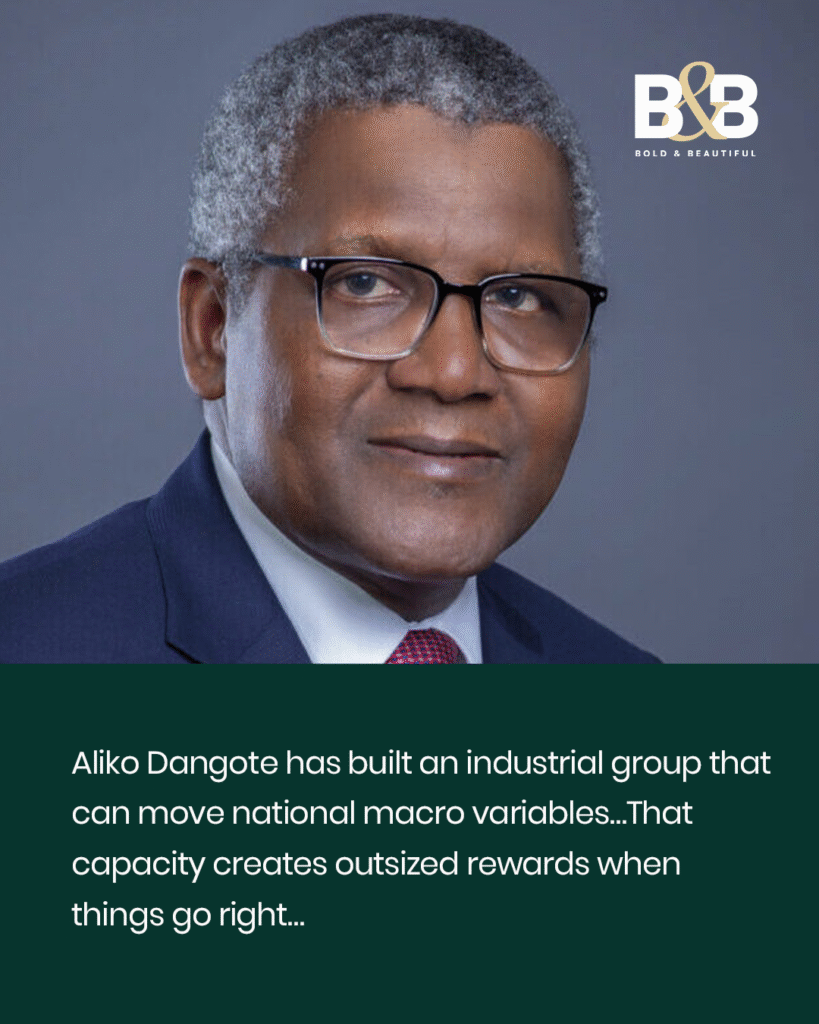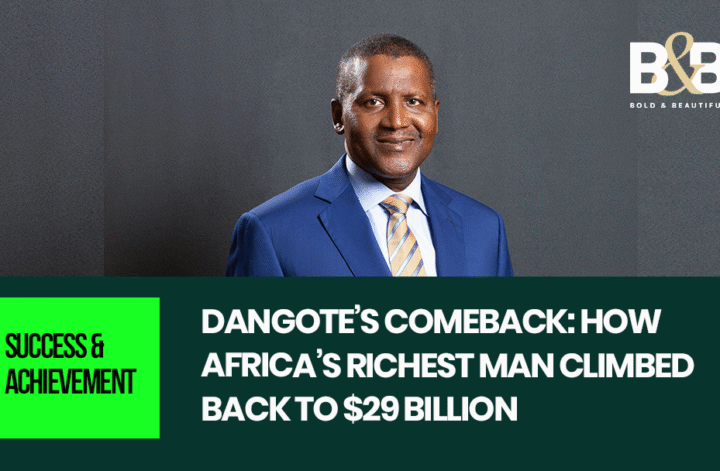Aliko Dangote’s net worth has moved back to roughly $29 billion, a recovery that reminds markets how closely his personal fortune tracks the fortunes of his companies. Bloomberg’s daily index shows the rebound after a mid-August wobble, returning Dangote to the top of Africa’s wealth rankings.
The immediate engine of the rebound is Dangote Cement. Better-than-expected results and a lift in the company’s share price on the Nigerian Exchange have repaired a chunk of the paper losses he suffered earlier in the year. Investors responded to improving margins and stronger domestic demand across key markets, which pushed Dangote’s largest public holding higher in value.

A second, more structural factor is the operational scale of the Dangote Refinery. Exports of refined products have begun to flow and those foreign-exchange earnings have eased some pressure on the group’s listed assets. Analysts are increasingly treating the refinery as an earnings lever that can alter the group’s cash flow profile once production normalises.
The rebound followed a brief slide in mid-August, when cement shares fell and erased hundreds of millions from the tycoon’s paper wealth. The sell-off was sharp but short lived. Market sentiment turned again through September as both cement performance and refinery-related dynamics improved, restoring much of the earlier decline.
The currency backdrop helped. A partial stabilisation of the naira lowered conversion pressure on dollar-denominated valuations for Nigerian equities. For large shareholders whose holdings are quoted locally, even modest foreign-exchange relief translates into meaningful adjustments to net worth estimates.

Dangote’s profile rests on more than cement and fuel. Fertiliser, sugar and other industrial businesses form a diversified industrial base that gives the group optionality. That diversification matters because swings in one sector can be offset by gains in another. The refinery’s promise of scale amplifies that dynamic given its potential to generate export revenues and import substitution simultaneously.
The story of this rebound is not only financial. It is political and social. The refinery, hailed as a national asset, has already reshaped conversations about fuel security and balance-of-payments management in Nigeria. At the same time, recent labour tensions and disputes over local sourcing and employment have highlighted the operating risks that can quickly affect perception and value.
Investors will watch several variables closely in the weeks ahead. Refinery throughput, export volumes, Dangote Cement’s quarterly performance, and currency trends will drive daily moves in valuation. The speed at which the refinery converts production into sustained export revenue is particularly important for any durable lift in Dangote’s measured wealth.
The bounce to $29 billion underlines two market realities. First, concentrated wealth in emerging markets is highly sensitive to single-asset performance. Second, industrial projects of national scale can quickly reroute investor narratives when they begin to deliver cash flow. For Dangote, the combination of a dominant cement business and a functioning mega-refinery has produced both volatility and upside.
For Nigeria, Dangote’s rebound has practical implications. A stronger valuation for his companies can boost confidence in local capital markets and attract attention from regional and global investors. It also sharpens the spotlight on policy choices that affect industrial operations, from crude allocations to trade and labour policy.
Risk remains. Labour actions, regulatory disputes and the complexities of aligning refinery exports with domestic fuel security pose immediate challenges. Any prolonged disruption to refinery operations or a renewed slide in cement margins could quickly reverse recent gains. Markets price that uncertainty every day.

The $29 billion headline frames a larger story about African industrialisation and the scale of private ambition on the continent. Aliko Dangote has built an industrial group that can move national macro variables. That capacity creates outsized rewards when things go right and concentrated downside when they do not. The current rebound buys time and credibility; the coming quarters will test whether that advantage becomes permanent.





